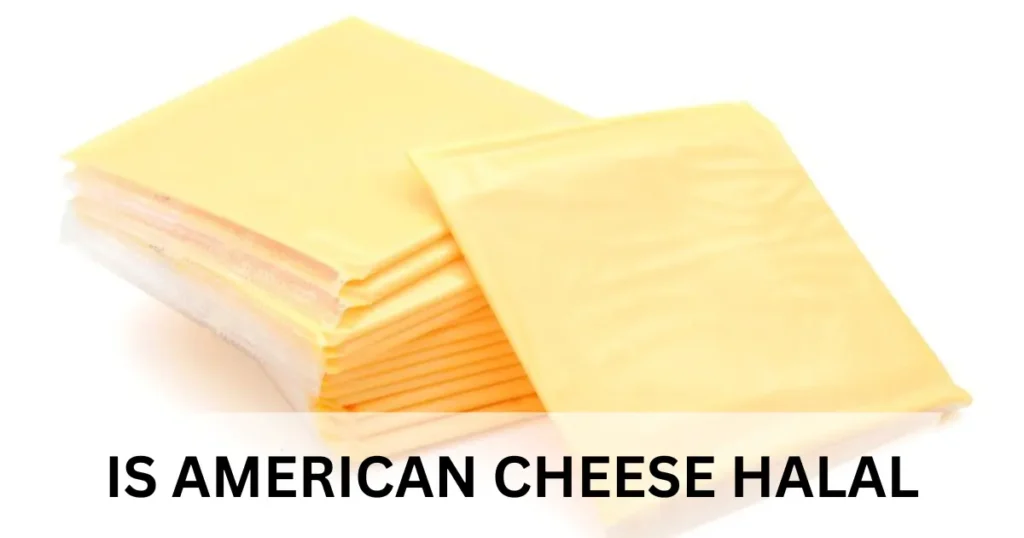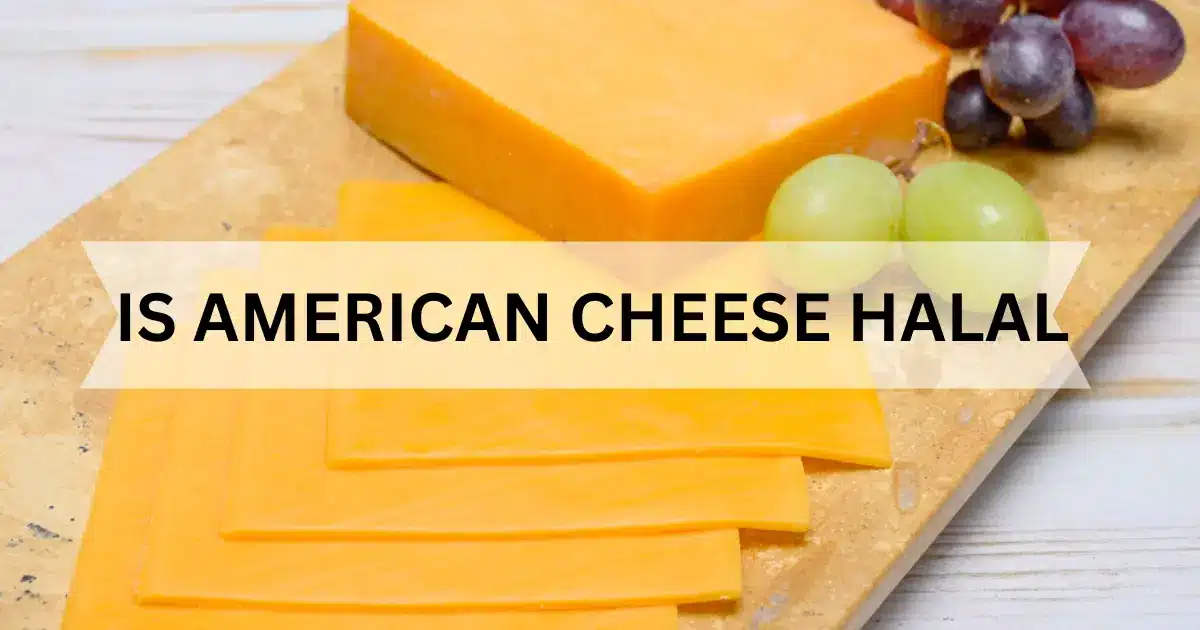American cheese is a staple in many households across the United States, celebrated for its versatility and creamy texture. However, for Muslim consumers, ensuring that American cheese is halal, or permissible according to Islamic dietary laws, is crucial.
In this article, we delve into the complexities of halal certification and assess whether American cheese can align with these religious dietary requirements.
Is American Cheese Halal?
American cheese is considered halal when the source of the animal enzymes used in its production comes from live animal milk (such as cow, lamb, or calf).
However, if the animal rennet comes from a dead animal that was not slaughtered in accordance with Sharia (halal slaughter), there is a strong chance it may not be halal.
Most American cheese available in supermarkets and grocery stores does not include rennet as an ingredient; instead, it is made with enzymes from plants, making it permissible for consumption by Muslims.
American Cheese Ingredients and Their Halal Status
| Ingredient | Description | Halal Status |
|---|---|---|
| Milk | Primary ingredient from cows | Generally Halal |
| Cultures | Bacteria used for fermentation | Generally Halal |
| Salt | Used for flavor and preservation | Halal |
| Enzymes (Animal-based) | Used for coagulation; if source is halal | Halal |
| Enzymes (Plant-based) | Used for coagulation | Halal |
| Enzymes (Microbial) | Used for coagulation | Halal |
| Annatto | Natural coloring agent | Halal |
| Calcium Phosphate | Mineral used as a firming agent | Halal |
| Sorbic Acid | Preservative | Halal |
| Acetic Acid | Preservative and flavor agent | Halal |
| Citric Acid | Preservative and flavor agent | Halal |
| Sodium Citrate | Emulsifying agent | Halal |
| Lactic Acid | Acidulant from bacterial fermentation | Halal |
| Alcohol (if used) | Occasionally used in processing or flavoring | Non-Halal |
Which Type of American Cheese is Haram
American cheese is not halal if it contains certain non-halal ingredients or uses non-halal processes.
Specifically, if the enzymes used for coagulation are derived from animals not slaughtered according to Islamic law, the cheese is considered non-halal.
Additionally, if the cheese includes additives or preservatives that contain alcohol or other non-halal substances, it is not permissible for Muslim consumers.
Some common non-halal additives might include certain flavorings, emulsifiers, or preservatives that are derived from non-halal sources. Without halal certification, it can be challenging to verify the permissibility of the cheese.
So make sure to check If the enzymes are derived from animals, they must come from animals slaughtered according to Islamic law. Additionally, the cheese must not contain any alcohol or non-halal additives.

Halal Certification of American Cheese Brands
Several American cheese brands have obtained halal certification to meet the dietary needs of Muslim consumers.
Popular brands with halal certification include Sargento, Tillamook, and Organic Valley. To verify if a cheese brand is halal certified, look for a halal certification symbol on the packaging, such as those from the Islamic Food and Nutrition Council of America (IFANCA) or Halal Monitoring Services (HMS).
It’s important to regularly check for certification, as ingredients and manufacturing processes can change, potentially affecting the halal status of the product.
How to Identify Halal Cheese in Stores
Identifying halal cheese in stores involves several steps. First, read ingredient labels carefully to spot any non-halal additives, such as animal-derived enzymes or alcohol.
Look for halal certification symbols, such as those from IFANCA or HMS, on the packaging.
If the label information is insufficient, contact the manufacturer directly to inquire about the sources of specific ingredients and their halal status. This ensures the cheese meets halal dietary requirements.
Related Post
- Is Ruffles Cheddar and Sour Cream Halal
- Are Cheez its Halal
- Is Doritos Halal in UK
- Are Goldfish Halal
Conclusion
Determining if American cheese is halal involves careful consideration of its ingredients and the manufacturing process. Key factors include the source of enzymes, the presence of alcohol, and other non-halal additives.
By checking for halal certification and thoroughly reading ingredient labels, Muslim consumers can ensure they are selecting permissible products.
As more brands obtain halal certification, it becomes easier to enjoy American cheese while adhering to dietary laws.
Staying informed and proactive in verifying halal status guarantees that your dietary choices align with Islamic principles.
FAQs
While it’s possible for cheese to be halal without certification, halal certification provides a higher level of assurance. Without certification, you must thoroughly investigate the ingredients and manufacturing processes, which can be challenging.
Halal certification is important because it provides assurance that the product meets Islamic dietary laws. It ensures that the cheese is free from non-halal ingredients and that the production process adheres to halal standards.
If you’re unsure about the halal status of a cheese product, contact the manufacturer for detailed information about the ingredients and their sources. Additionally, seek guidance from reliable halal certification bodies or consult with knowledgeable individuals in your community.


